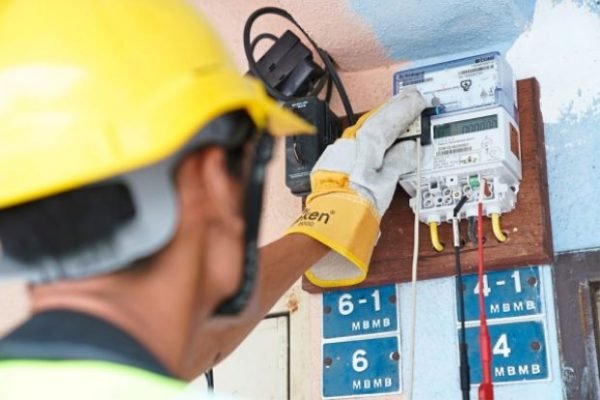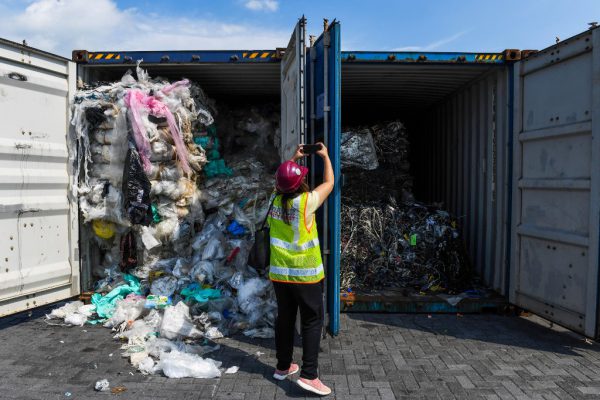Malaysia to send back 60 containers of foreign garbage
Malaysia is putting a stop to the practice of unscrupulous dumping of foreign garbage into our soil. For a start, a total of 60 containers filled with 3,000 metric tonnes of garbage will be shipped off to its countries of origin in the near future. The first phase of the massive operation began by getting rid of 10 containers, filled to the brim with 450 metric tonnes of contaminated plastic waste originating from the United States, Japan, Canada, Australia, China, Saudi Arabia and even Bangladesh. The Environmental Quality Act 1974 will be enforced against the importers, made up of local players, where a notice will be served against them with instruction to ship the containers back to the exporters. Energy, Science, Technology, Environment and Climate Change Minister Yeo Bee Yin said the containers were illegally brought into Malaysia under false declaration and other offences, which clearly violated the environmental law. (NST Online)
PNB Project 1194 to be completed after 13-year delay
Upon its completion in 2021, the redeveloped former Malaysian Airline System Bhd (MAS) headquarters in Jalan Sultan Ismail, Kuala Lumpur, will comprise a 35-storey office block and 50-storey hotel, and be linked by an elevated walkway to the Kenanga building across the road. To unlock the full value of the RM1 billion redevelopment, which is about 45% completed, project owner Permodalan Nasional Bhd (PNB) also plans to extend the walkway to the KLCC-Pavilion link bridge. In 2006, PNB paid RM130 million for the office building. Named PNB Project 1194 after the lot number of the site, the redevelopment is expected to be completed in two years, after a 13-year delay. Industry sources say the hotel operator is a US-based hospitality chain that will introduce a new brand to Malaysia. (The Edge)
Retail investors one step closer to crowdfund first-time homebuyers
The Securities Commission Malaysia (SC) introduced its regulatory framework for property crowdfunding (PCF) last Friday, paving the way for those keen on conducting such a business to send in applications to become PCF platform operators. This is a significant development, as once such platforms are up, retail and institutional investors will have the opportunity to “crowdfund” first-time homebuyers for properties valued at RM500,000 and below. Property consultants say they like the idea of PCF but that it has to be done in a transparent manner and good governance processes must be in place. There should be no hidden charges and both buyer and investor should be fully aware of the risks involved, which include fluctuating property values. The scheme could also benefit those who do not qualify for traditional bank loans but have other income from part-time jobs to support their livelihood, said a developer. (The Edge)
Mainland developers take a shine to Hong Kong industrial property
Chinese developers are eyeing Hong Kong’s revitalised industrial property market, which has been traditionally dominated by local investors, as they see high potential for price growth in the world’s least affordable housing market. The value of industrial properties sold to mainland developers or investors totalled HK$2.32 billion (US$295.56 million) in 2018, reflecting a rise of 44.3% from 2017. Last year, mainland developers and investors bought HK$3.12 billion worth of revitalised industrial properties, reflecting their first investments in the sector, according to CBRE data. The scheme on Revitalisation of Industrial Buildings was put in place from 2010 to 2016 to encourage conversion and redevelopment of aged industrial buildings. The programme was relaunched last year. (The Edge)

(Source: The Star Online)
Negligence among TNB faults
Negligence and technical fault on the part of Tenaga Nasional Bhd were two among three reasons why electricity bills spiked for certain consumers but the government is having none of it. Energy, Science, Technology, Environment and Climate Change Minister Yeo Bee Yin said TNB must be made accountable for what happened or risk facing legal action from consumers. The Energy Commission had met TNB earlier yesterday over the uproar among consumers in Melaka, and other parts of the country who complained of higher than usual power bills. Besides the two reasons, Yeo said the other given was that consumers were billed for electricity usage for over 30 days when the standard procedure required the utility firm to issue bills for 30 days. The complaints on surge in power charges was from consumers nationwide and not just Melaka households involved in the smart meter pilot project by TNB. (The Star Online)





